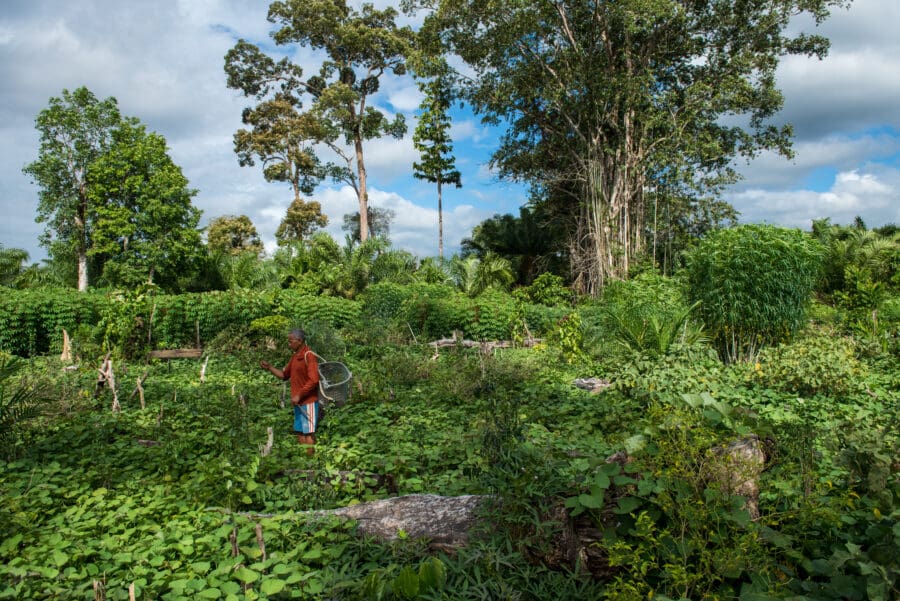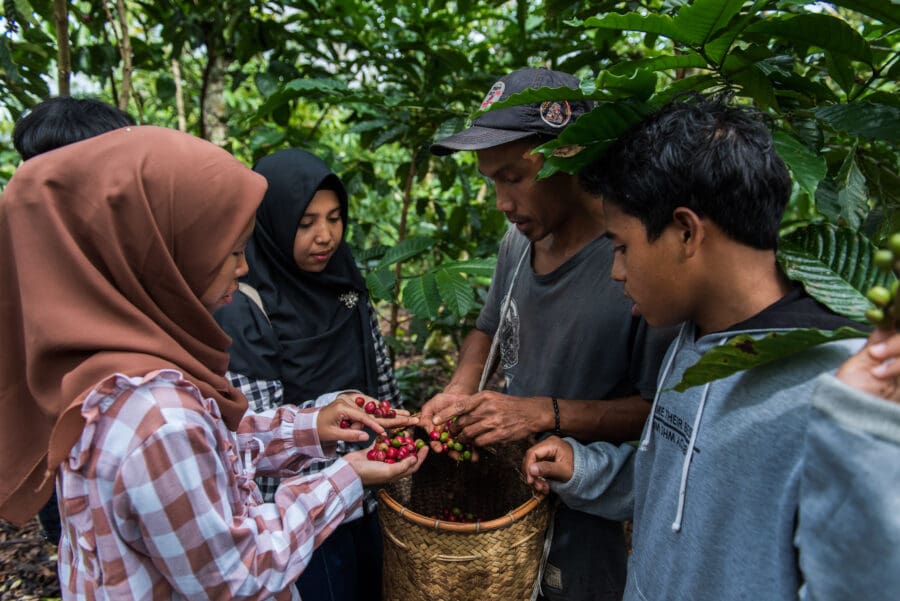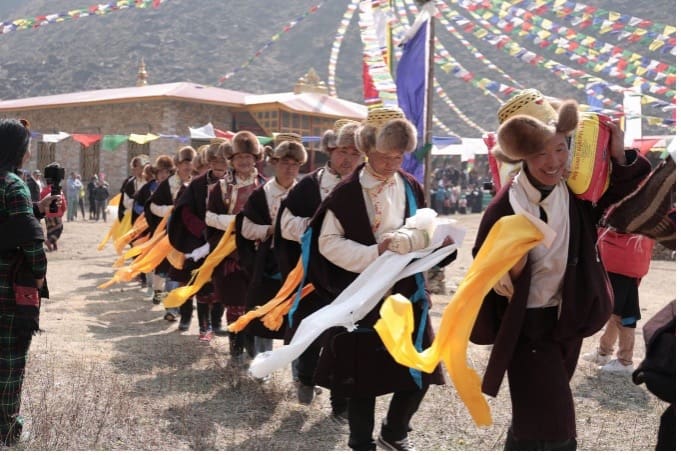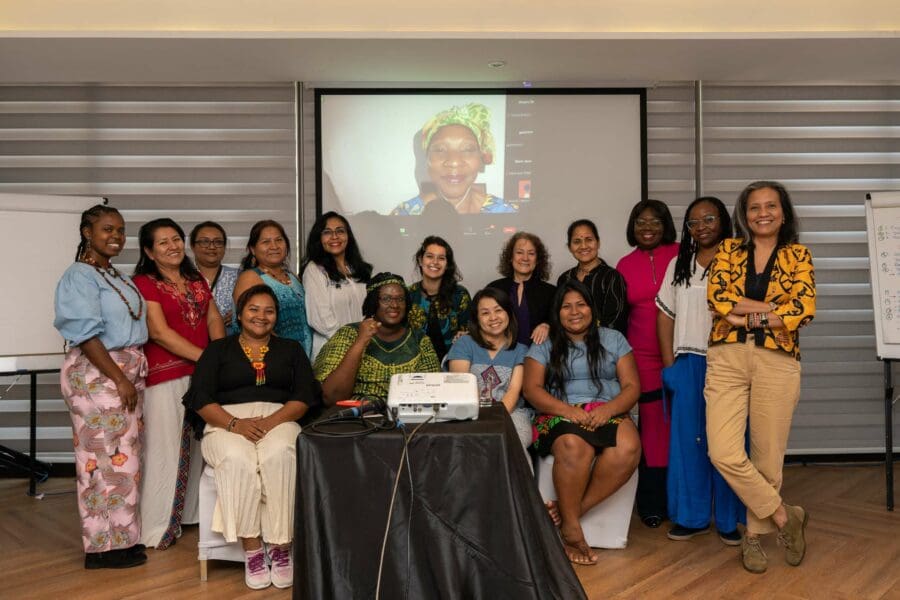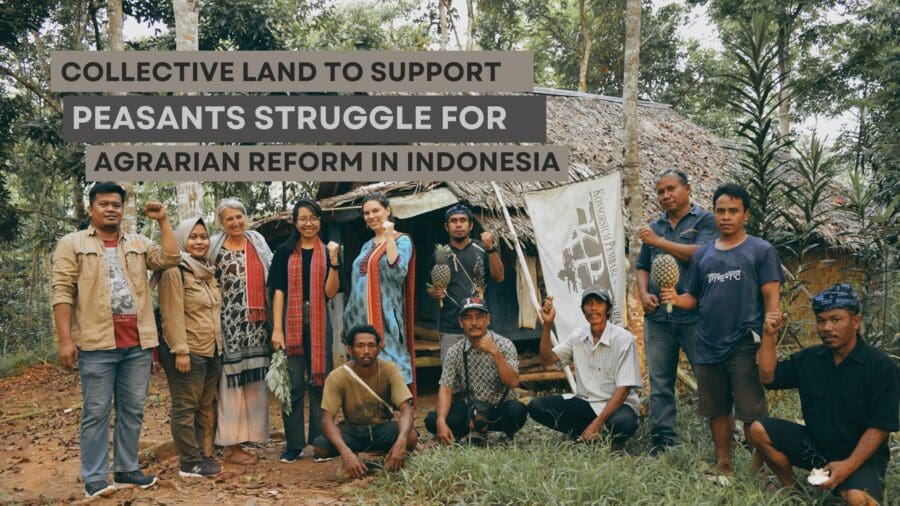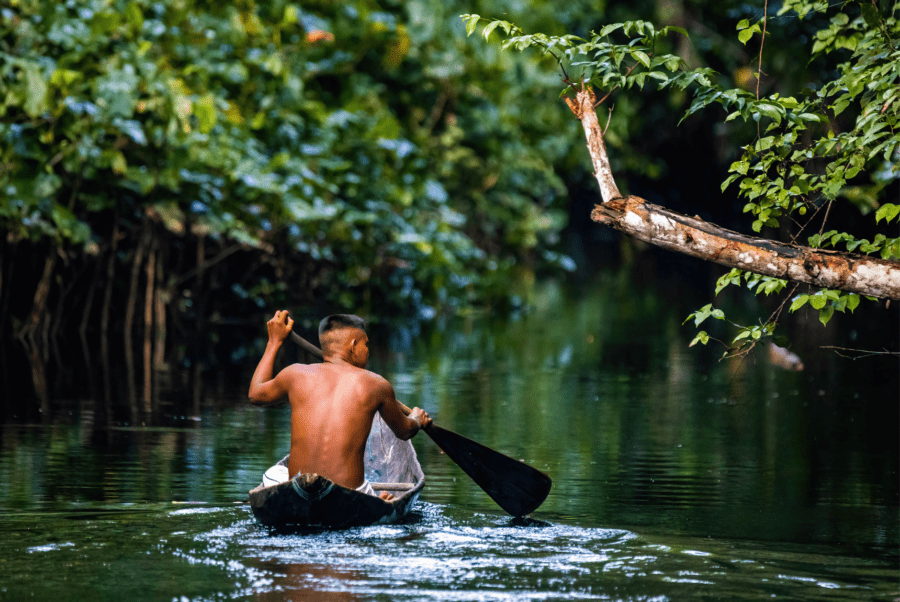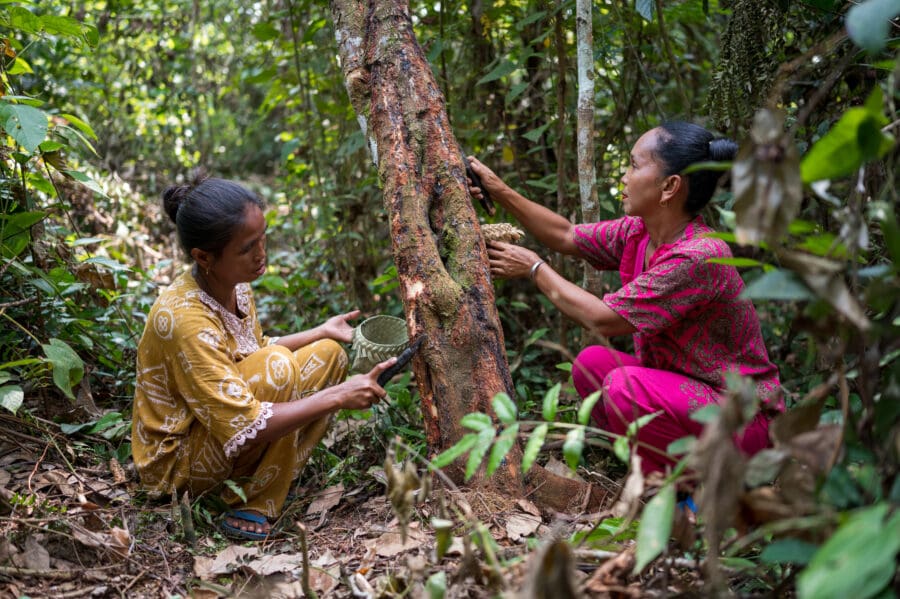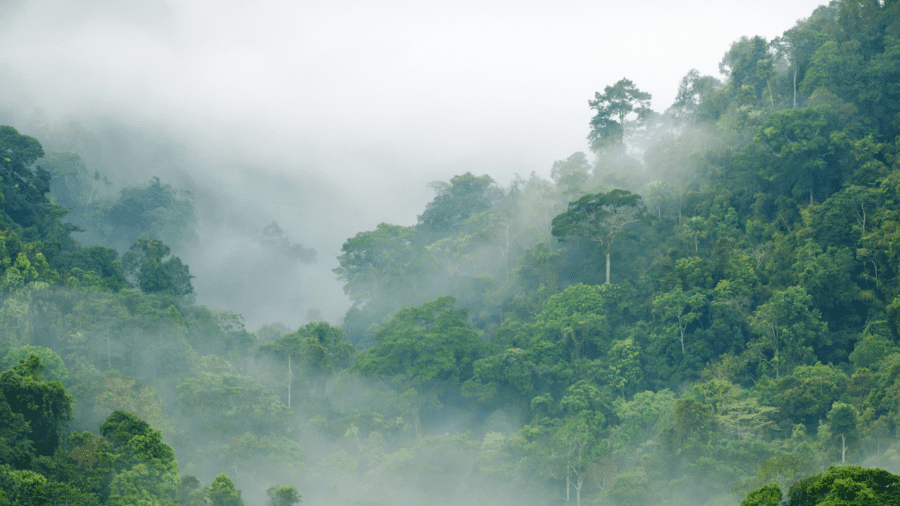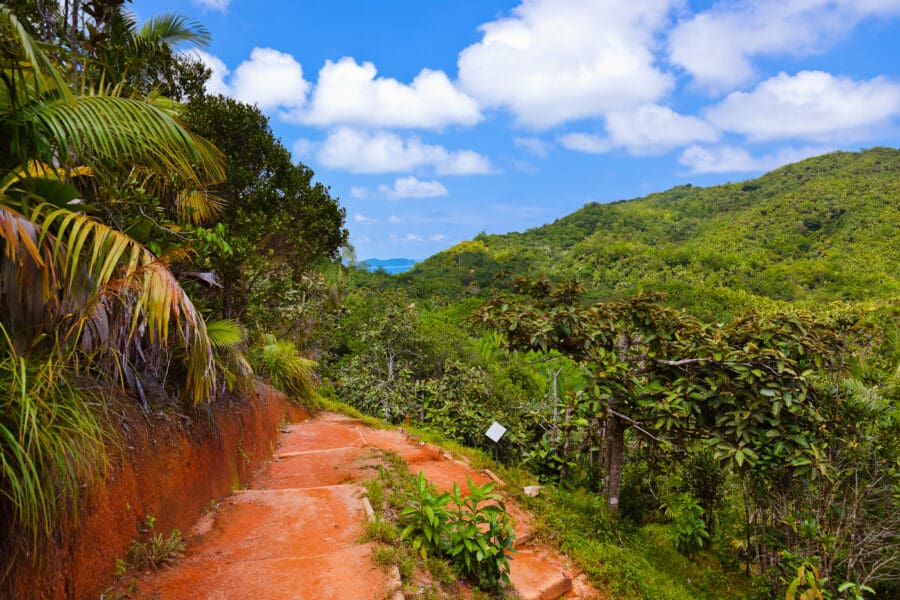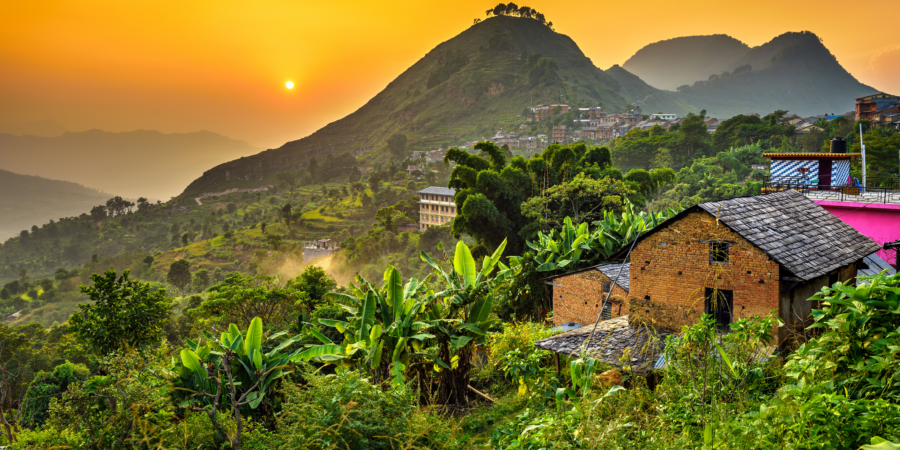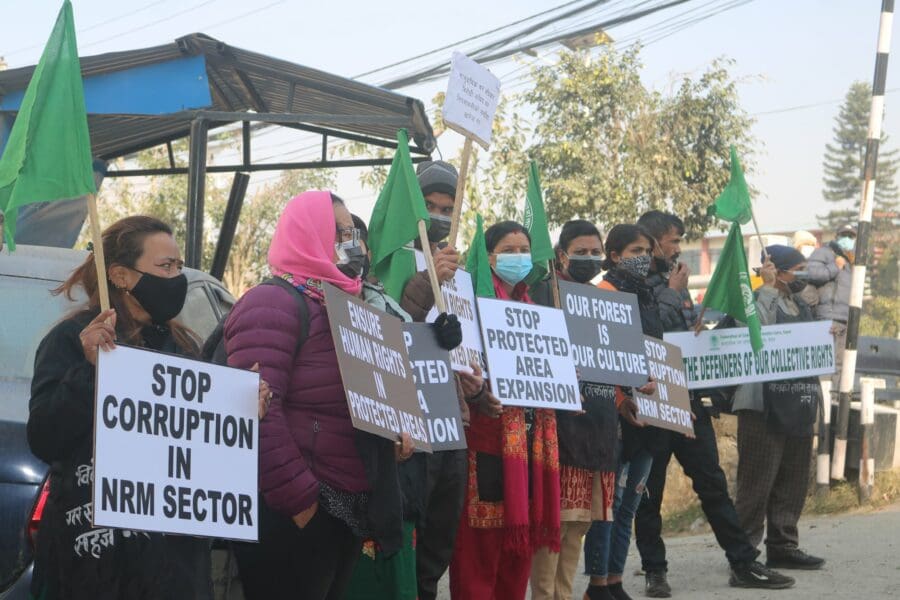The recent release of the Second Edition of Who Owns the World’s Land? offers an important moment to take stock of the global state of Indigenous, Afro-descendant, and local community land rights recognition. The data in the report covers 73 countries, which cumulatively comprise 85% of the world's land area, and gives a comprehensive snapshot of the global landscape for community land rights at a critical moment for people and the planet. Here are five of the biggest takeaways from the report.
For more than 10 years, the LandWise Law Library has grown into an essential resource on family, land, and natural resource rights under the care of Landesa and Resource Equity. As Resource Equity closes its doors, RRI is thrilled to announce that it will carry the LandWise Law Library on through its next chapter.
RRI collaborators are celebrating two big victories for Indonesia’s agrarian reform movement this October. The Consortium for Agrarian Reform’s years-long advocacy with peasant and smallholder farmers has led to redistribution of two agrarian reform priority locations by the Indonesian Government, transferring their control to peasant and their union who have long reclaiming and managing these lands.
In the lead-up to COP28, amid a growing push to restore degraded and deforested lands as natural climate solution, a new peer-reviewed study shows better outcomes when Indigenous Peoples and local communities are in charge.
Co-authored with 15 organizations from across Asia—spanning youth groups, Indigenous networks, and ally organizations—this new report collates and brings to the fore the experiences and leadership of youth activists from across the continent into a call to action.
According to a new report by RRI, existing national laws have the potential to recognize Indigenous Peoples’, Afro-descendant Peoples’, and local communities’ rights to own or control more than 260 million hectares (Mha) of land across the world—an area twice the size of Peru.
A new resource seeks to support companies and investors in understanding the shared value community monitoring could add to their operations and investments, and outlines principles to help them build productive partnerships with communities to secure their land tenure and improve compliance with environmental and social standards and commitments.
In Nepal, the local government of Gorkha District’s Tsum Nubri Rural Municipality recently adopted a new law to formally recognize and preserve the local community’s Shagya tradition of nonviolence.
Members of the new network agree to create more documentation on land rights and governance processes for Indigenous, Afro-descendant, and local community women; call for strengthening advocacy capacity.
P2B, a peasants' organization based in Banten, Indonesia, is a leading actor in the local struggle for agrarian reform and collective land tenure rights.
Nepal's Indigenous Tsum Nubri community achieves a key legislative victory in maintaining traditional methods of forest governance.
On the eve of CoP15, Landscape News spoke with Gam Shimray, Secretary-General of the Asia Indigenous Peoples Pact (AIPP) who has been defending and promoting the rights of Indigenous Peoples for almost 30 years. Here, he explicates just how deeply rights, biodiversity and the global future are intertwined.
Indigenous and community leaders from North America and the global South come together to build relations and strengthen a global solidarity movement around Indigenous and community-led responses to the global biodiversity and climate crises.
On December 6, RRI, the Conservation through Reconciliation Partnership (CRP), and the ICCA Consortium—in partnership with the Canadian Research Chair in Human Rights, Health, and the Environment, Montreal International and the Christensen Fund—will co-host a pre-COP15 dialogue on Indigenous and community leadership in conservation.
November 14 marks Gender Day and Water Day at CoP27 in Sharm-El-Sheikh, Egypt. We must take a moment to recognize how Indigenous, Afro-descendant, and local community women and girls are leaders in climate change mitigation and adaptation and integral to attaining the UN's 2030 Sustainable Development Agenda.
On November 11 at CoP27, 41 grassroots women’s organizations from Asia, Africa, and Latin America launched a new advocacy network called the Women in Global South Alliance for Tenure and Climate.
RRI is excited to announce the launch of its new online Tenure Tool. This platform, hosted on RRI’s website, will give rightsholders, researchers, activists, policymakers, and the public free and easy access to qualitative and quantitative data on the forest tenure rights of Indigenous Peoples, Afro-descendant Peoples, local communities, and the women within those communities.
In this new report, researchers compiled data on this funding stream and assessed the grants along different dimensions of “Fit for Purpose” criteria—determining whether the funding achieved its intended goals or was compromised in delivery and effectiveness.
When members of the Indonesia-based AsM Law Office landed in Monrovia, Liberia this June, they had a two-fold agenda for their two week exchange with leaders of Liberian civil society.
A new study led by biologists at University of Amsterdam shows that the minimum land area requiring urgent conservation attention to safeguard Earth’s biodiversity is 64 million square km, equalling 44% of the planet’s terrestrial area.
India is among the top ten countries most vulnerable to climate change. A new study finds that the Forest Rights Act is an effective tool to enable rights-based and gender-responsive approaches to climate action and can legally empower forest dwellers to manage and govern nearly 40 million hectares of the country's forests.
In Nawalpur district, 197 km southwest of Kathmandu, women from the Tharu and Kumal tribes in Madyavindu Municipality worked together throughout the 2021 monsoon season finding ways to adapt and support their communities while adhering to pandemic safety guidelines, demonstrating their inspiring resilience and socio-economic prowess.
Several forest regulations recently introduced by Nepal’s Ministry of Forest and Environment are raising serious human rights concerns among the country’s local forest communities. These provisions, currently under cabinet review, are geared to become part of Nepal’s Forest Act. But local forest communities say they are in direct contrast to the Act’s spirit and violate their rights.
This report is a product of an extensive collaboration between 20 Indigenous and local community organizations across Asia, and brings together data and stories from communities on the ground to re-position global human rights and conservation discourses at the center of Asia’s unique political realities. It frames conservation beyond being an issue of natural resource management and highlights the question of governance, autonomy, and sovereignty of Indigenous Peoples and local communities to achieve their self-determined development aspirations.






